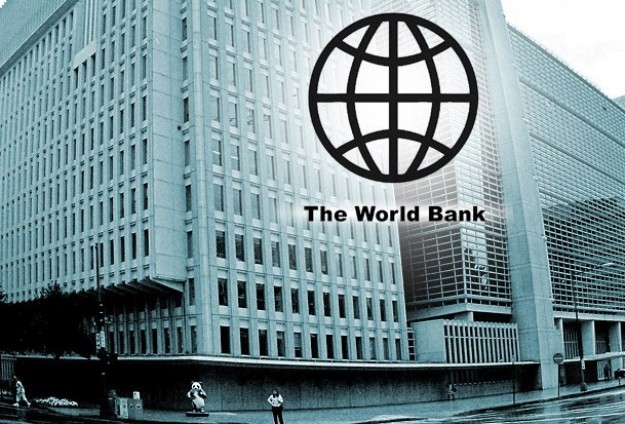The World Bank has disagreed with Finance Minister Kemi Adeosun on the need for the Federal Government to borrow more in order to develop the nation’s infrastructure and stimulate the economy.
The World Bank spoke through its Senior Economist, Gloria Joseph-Raji, on Monday in Abuja, saying that the cost of borrowing or paying interest on Nigeria’s debt is not sustainable as revenues to make such payment have dwindled.
She told the Punch on the sidelines of the lunch of Africa Pulse, a biannual report on Africa.
Adeosun said on Sunday at the end of the World Bank/International Monetary Fund annual meeting in Washington DC, United States that Nigerians would have to tolerate more borrowings in the short term for the government to deliver critical infrastructure.
The World Bank official, however, said that dwindling revenues is a factor at every level of
government and the WB.
According to her, Nigeria’s borrowing as debt-to-revenue ratio has jumped up by 25 per cent within a period of one year.
She said in 2015, the country’s debt to revenue ratio stood at 35 per cent but rose to 60 per cent by 2016, reflecting a reduction in government revenues and rising debt profile.
“Nigeria has a decent debt-to-GDP ratio, currently about 19 per cent. It is the debt to revenue ratio that is of concern and that rate is a sustainable issue. That is of concern to us and that is also of concern to the government,’ she said in the interview with the newspaper.
“The government is aware that the debt is looking more unsustainable from the point of debt service to revenue ratio. The estimate we had for last year at the federal level was about 60 per cent. That is coming from about 35 per cent in 2015.
“That reflects the substantially lower revenues that Nigeria recorded last year. Even among the state governments; we know that a lot of state governments are servicing a lot of debts from their federation account allocation. So, there is really going to be a sustainable issue emerging.”
Citing the Debt Management Office’s Debt Management Strategy 2016 to 2019 released last year, she said the effort was to rebalance the debt portfolio from more of domestic now to more of foreign. That is because of the debt servicing cost.
“Before now we had a debt portfolio of about 80 per cent domestic to 20 per cent external. We know that the debt servicing cost of domestic debt is really high. Treasury bill is an average of 18 per cent; the FGN bonds, from 16 per cent. The government is trying to rebalance its portfolio with foreign debt, which has much lower interest rate than domestic debt. That is why this year you have seen them go for Eurobonds, with a total of $1.5bn in the first quarter of the year. They also did Diaspora bond of $300m. If you look at the yield on those bonds, they are much less than 10 per cent.
“The government is aware that there is a sustainable issue and that is what they are trying to correct by taking more foreign debt.”
Joseph-Raji said in the light of expenditure exceeding revenue, government should borrow, but it should borrow in a manner that was sustainable.

 Entertainment6 days ago
Entertainment6 days ago
 Health5 days ago
Health5 days ago
 Crime5 days ago
Crime5 days ago
 Education7 days ago
Education7 days ago
 Health7 days ago
Health7 days ago
 Comments and Issues6 days ago
Comments and Issues6 days ago
 Football6 days ago
Football6 days ago
 Latest5 days ago
Latest5 days ago













